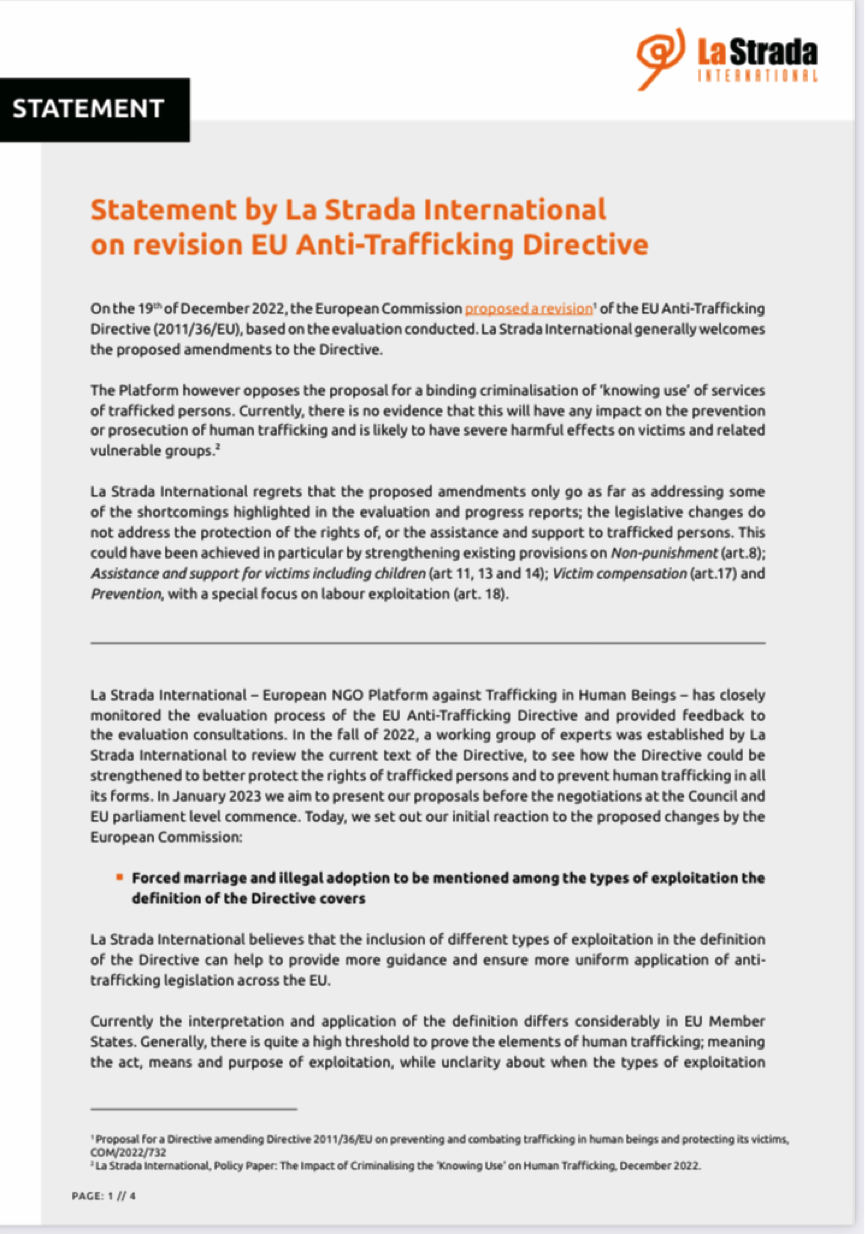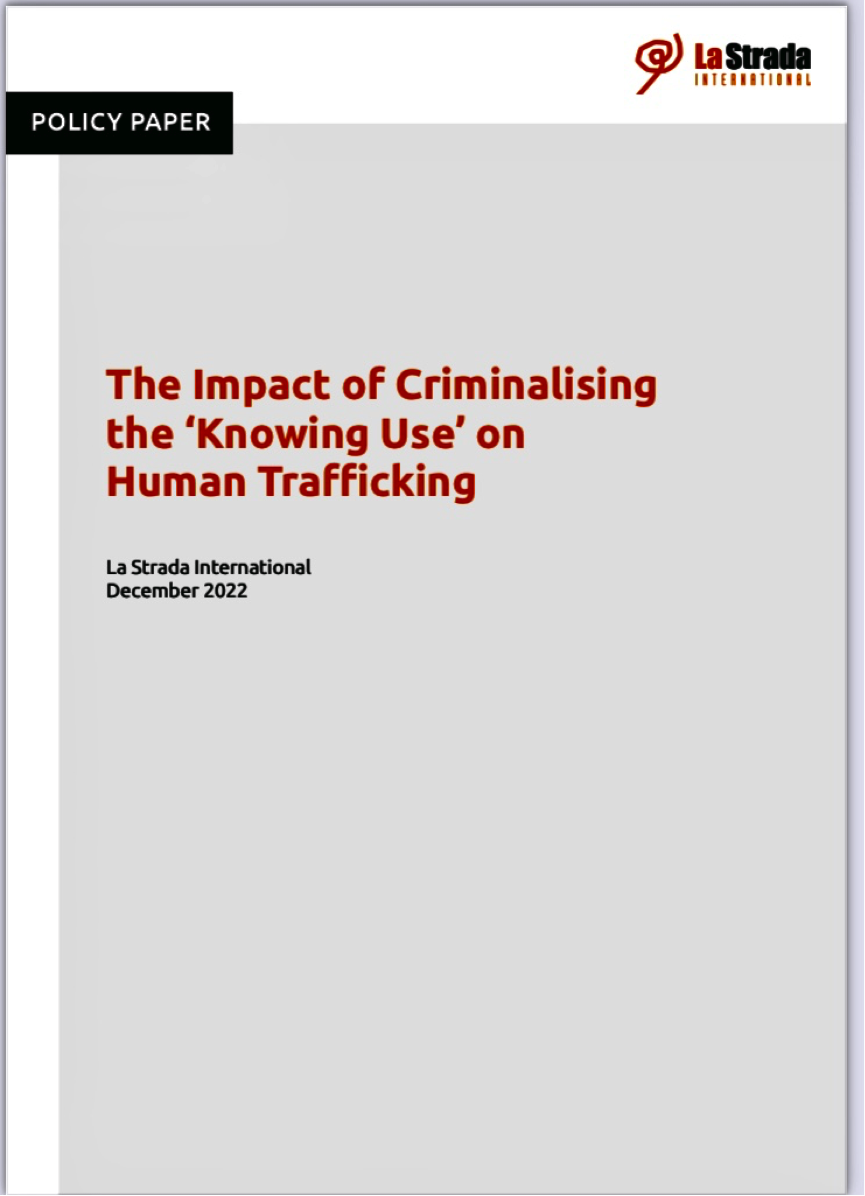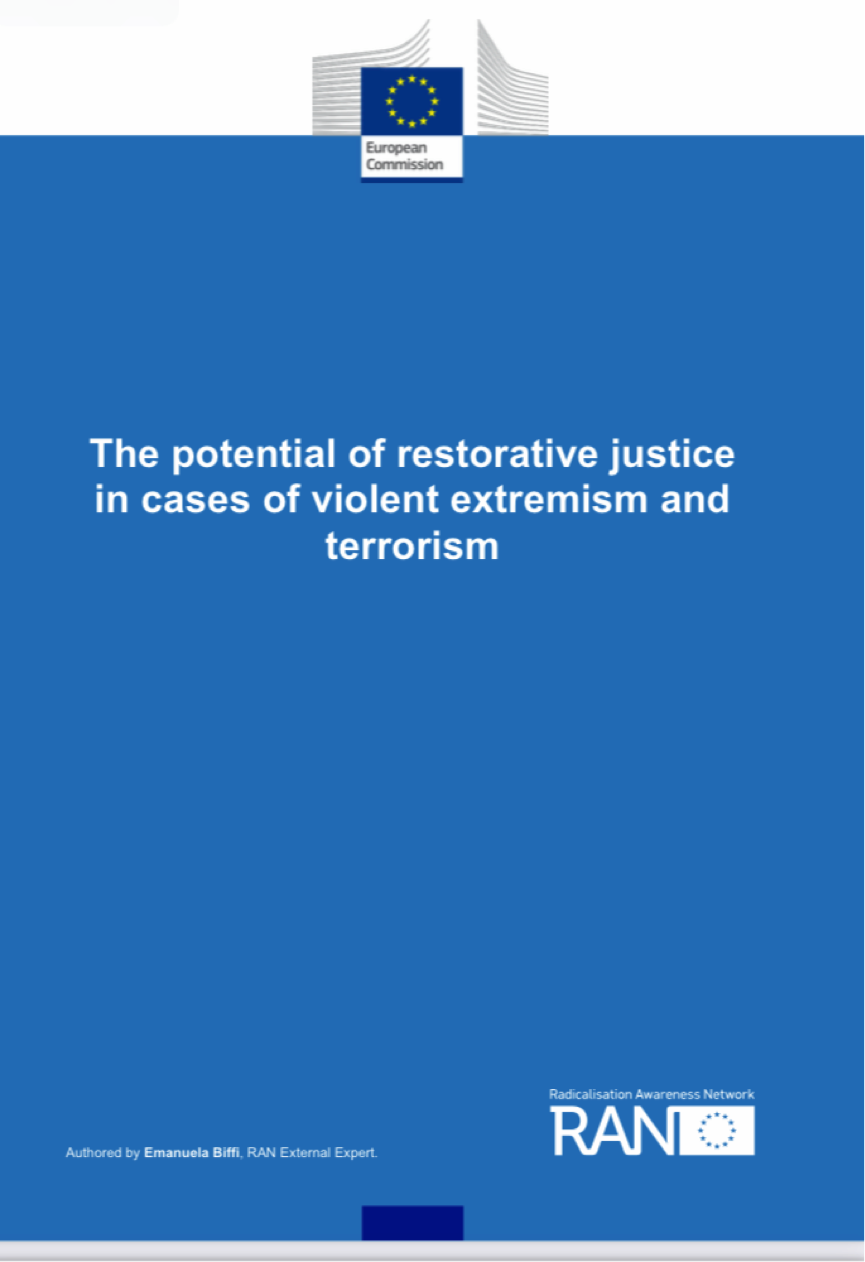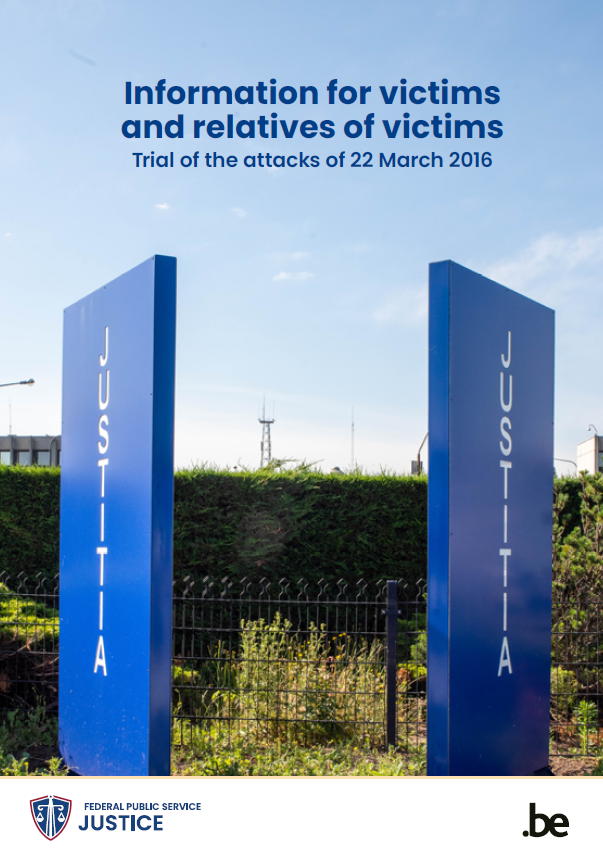- Home
- Knowledge Database
For a quick search in the Knowledge database below, please use the search box. Also, note that using one or more of the dropdown filters will optimise your search.
Watch this video to find out more about our Knowledge Database and the publications we have collected here for you: video
Knowledge Database
-
Position Paper on the revision of the restorative justice provisions of the Victims’ Rights Directive
European Forum for Restorative Justice | Published in 2022
The position paper aims to outline a European perspective concerning the implementation of the RJ provisions in the VRD. The position paper is mainly based on information collected via a survey that the EFRJ conducted in 2021, as well as on research conducted by the EFRJ in the last years. The survey was sent to different target groups (RJ service providers, practitioners and policymakers) and 45 responses covering 16 EU Member States and two non-EU European countries have been received.
Keywords: justice, support, victims' rights -
Statement on revision EU Anti-Trafficking Directive
La Strada International | Published in 2022
La Strada International – European NGO Platform against Trafficking in Human Beings – has closely monitored the evaluation process of the EU Anti-Trafficking Directive and provided feedback to the evaluation consultations. In the fall of 2022, a working group of experts was established by La Strada International to review the current text of the Directive, to see how the Directive could be strengthened to better protect the rights of trafficked persons and to prevent human trafficking in all its forms.
Keywords: human trafficking -
Policy paper: The Impact of Criminalising the ‘Knowing Use’ on Human Trafficking
La Strada International | Published in 2022
Currently, article 18(4) of the EU Trafficking Directive only recommends criminalising the ‘knowing use of services provided by trafficked persons’. As there currently is only very limited research available on the possible impact and side effects of criminalising the ‘knowing use’, especially regarding the use of this provision for all forms of exploitation, La Strada International has conducted a series of interviews with 19 experts from 10 EU countries, to reveal the practical effects seen by experts in the field. Through this small-scale assessment, complemented with desk research, La Strada International concludes that there is currently no proven impact of this criminalisation on combatting human trafficking. While two-thirds of the EU Member States have already introduced this provision in national legislation, there is only very limited prosecutorial activity and few convictions across the EU. Furthermore, the interviewees expressed a range of concerns regarding the harmful side effects for victims and precarious (sex) workers, including the increased vulnerability and stigmatisation, as well as risks of secondary victimisation and eroding trafficked persons’ rights.
Keywords: human trafficking -
Evaluation of the Victims’ Rights Directive (Commission Staff Working Document)
European Commission | Published in 2022
On 28 June 2022, the European Commission adopted its evaluation of the Victims’ Rights Directive. The evaluation is one of the Commission’s key actions set out in the EU Strategy on Victims’ Rights (2020 – 2025). It was informed by a support study and data collection that included a public consultation. The evaluation shows that over the past ten years, the Victims’ Rights Directive has greatly contributed to improving the lives of victims across the EU. It has enhanced victims’ safety and reduced the risk of negatives effect from the participation in criminal proceedings and from the contacts with the offender. However, the evaluation also points that there are still situation where not all victims can fully rely on their rights due to a lack of clarity and precision in the drafting of some of the rights in the Directive. In particular, shortcomings were identified in relation to victims’ access to information, victims’ access to support services and to protection in accordance with each victim individual needs. Victims should be able to take more active role in the criminal proceedings and have easier access to compensation – so they can see that justice is done for them. The Commission will continue working on strengthening victims’ rights and plans to propose a revision of the Victims’ Rights Directive in 2023.
Keywords: victims' rights -
Restorative justice in cases of violent extremism and hate crimes
The European Forum for Restorative Justice (EFRJ) | Published in 2021
This practice paper has been prepared by this EFRJ working group of experts (including researchers and practitioners) in the use of restorative justice in cases of violent extremism, polarisation and hate crime. The practice paper addresses restorative justice practitioners with a set of key questions relevant to identify risks and challenges when proposing restorative justice in cases of violent extremism.
Keywords: hate crime, restorative justice, terrorism -
Restorative justice in cases of violent extremism
The European Forum for Restorative Justice (EFRJ) | Published in 2022
This policy paper is especially directed at European policy-makers, civil servants and network organisations concerned with addressing violent extremism. It complements the practice paper published in 2021. Both these publications call for additional ways to respond to the harms caused by violent extremism, terrorism and, more generally, hate and polarisation.
Keywords: restorative justice, terrorism, violence -
The role of restorative justice in preventing and responding to violent extremism
Radicalisation Awareness Network | Published in 2020
This paper captures the outcomes of this meeting, that brought together two RAN Working Groups (RAN RVT and RAN EXIT) and the European Forum for Restorative Justice (EFRJ) for exploring the role of Restorative Justice (RJ) in cases of violent extremism. This includes inspiring restorative justice initiatives and challenges in the field. It is divided into the following four sections: Setting the scene, Restorative justice realities, Other innovative restorative justice approaches, and key messages and recommendations.
Keywords: justice, restorative justice, terrorism -
Promising Strategies of Restorative Justice in Anti-LGBT Hate Crime Cases
LetsGoByTalking Project Consortium | Published in 2021
The aim of this booklet is to synthesise promising strategies, and offer information that answers common questions. Furthermore, the booklet hopes to increase awareness for policymakers and key stakeholders by presenting evidence from different countries on how to approach restorative justice in cases of anti-LGBT hate crime cases.
Keywords: hate crime, restorative justice -
The potential of restorative justice in cases of violent extremism and terrorism
European Forum for Restorative Justice (EFRJ) and the Radicalisation Awareness Network | Published in 2021
This paper provides an overview of the concept of restorative justice and answers the questions how restorative justice, understood as a set of values, principles and resulting practices, offers many opportunities for preventing and countering violent extremism. In cases of violent extremism, restorative justice has been used to provide concrete responses to the direct parties affected (e.g. victim-offender mediation), and sometimes to support the wider peacebuilding process in a certain community or country (e.g. through restorative circles).
Keywords: restorative justice, terrorism, victims' rights -
Information for victims and relatives of victims
Belgian Government | Published in 2022
Trial of the attacks of 22 March 2016.
Keywords: justice, terrorism
© 2024 VSE, All Rights Reserved










